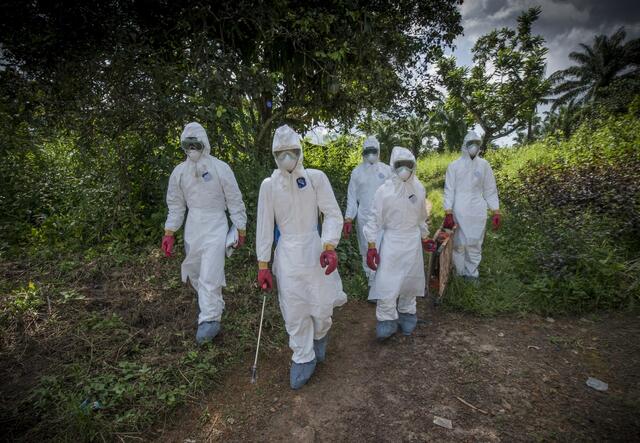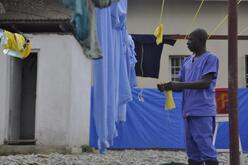As we mark the second anniversary of the Ebola outbreak, Darren Hertz, an IRC aid worker recalls his experiences fighting the deadly disease that took the lives of almost four thousand people within the country:
"When Ebola hit Sierra Leone, I was working as IRC’s education coordinator. Immediately, our programme committed to stay and fight to contain the virus – whatever it took – and I headed up country to start up response programmes. Denial was everywhere, rumours circulated widely that this was the government’s attempt to thin out the opposing party’s population or that deaths were the result of curses fuelled by jealousy. Our ambulance teams were stoned when heading out to a rural community to a pick up an Ebola suspected patient. I tried to imagine myself born and raised in a rural village and then one day a big white truck pulls up and men get out in white “space suits” and attempt to take my mother away.

The virus raged on, apathetic to claims that it would remain relatively isolated. It spread quickly to a second district, Kenema, where Dr. Khan, a son of Sierra Leone, isolated and cared for Ebola patients in the hospital’s Lassa Fever ward. Then Dr. Khan was infected, and died, and the whole country believed Ebola was real. But, like a colleague told me, “Ebola attacks us because we are people who love and care for each other – Ebola kills through human touch”. Your infant child gets sick and you are not supposed to touch her? Could you do that? Ebola also traumatizes through fear - like the fear my wife felt as I was sent off to an Ebola isolation unit, after coming down with a fever and body aches that thankfully turned out to be malaria.

The virus finally peaked, after ravishing all 14 districts of the country. The desperate desire for its end has been palpable. There’s much cause for national remembrance of family members and friends who were taken. And there’s much cause for celebration of the amazing, untiring work that has been done despite the ever-present danger and the profound sense of fear. But it’s also time to recommit to preventing a future outbreak. Ebola has been here much longer than we initially knew. We also know few countries experiencing Ebola have only experienced it once. And, as a co-worker put it, “this region is our home, two houses have been extinguished but Guinea, the third house, still burns uncontrolled."
The International Rescue Committee has been at the forefront of the fight to stem the spread of Ebola in Sierra Leone and Liberia since the outbreak began in March 2014. We're working closely with local governments in both countries on the transition to recovery and long-term rehabilitation of health systems, schools and communities.
Read the IRC's new report on learning the lessons from the Ebola outbreak.